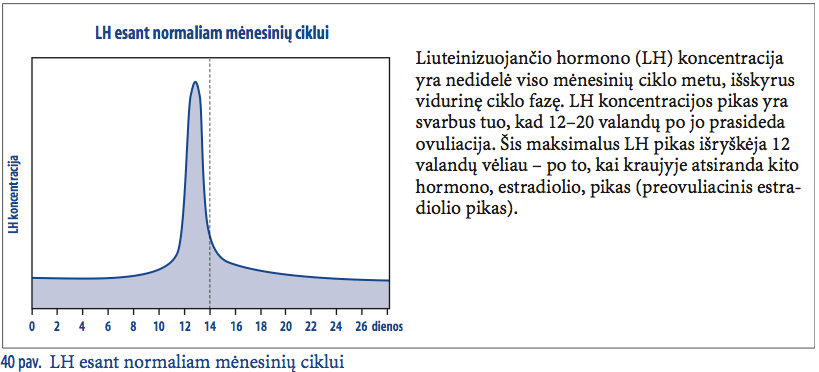Luteinising hormone (LH)
If your periods are irregular, blood tests are carried out daily, starting on the 8th day before the expected start of your period. Determining the maximum concentration allows you to assess the best time of day to get pregnant.
13,00 €

The release of luteinising hormone (LH) into the bloodstream is erratic, pulsatile and dependent on ovulation. A luteinising hormone secreted by the anterior pituitary gland. Luteinising hormone stimulates ovulation and stimulates the synthesis of oestradiol (and other oestrogens) and progesterone in ovarian cells. LH in men activates testosterone synthesis. Testosterone, in turn, restrains the release of LH. In women, LH concentrations peak 12-20 hours before ovulation begins. This elevated level of the hormone lasts for about one day and is about 10 times higher than during the non-ovulatory period. If menstruation is irregular, the blood test should be carried out daily, starting on the 8th to 18th day before the expected start of menstruation. This tactic helps to detect pathology of the reproductive organs, endocrine organs or pituitary gland. During the menopause, slightly elevated levels of LH and FSH settle down. It is very important that blood is taken 3 times with a 30-minute interval between each sample if a low LH level is suspected. This allows for a reliable measurement during reduced LH synthesis, as LH secretion in the presence of an overall reduction varies widely (it may be normal in a single individual portion). The serum used for the test is made by mixing all three portions. The test is important for assessing male gonadal function.

You can consult our family doctors.
